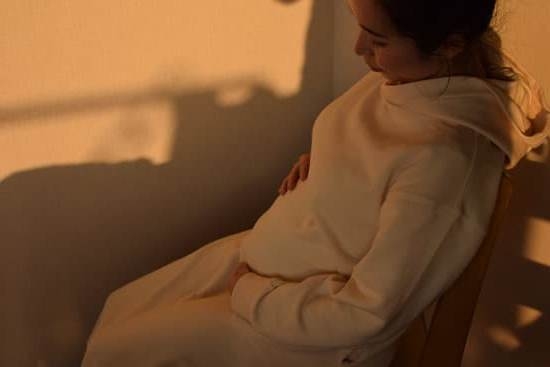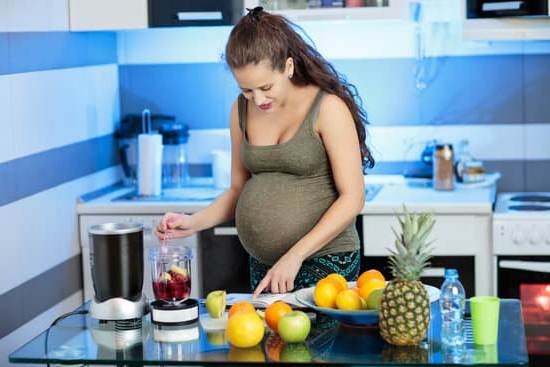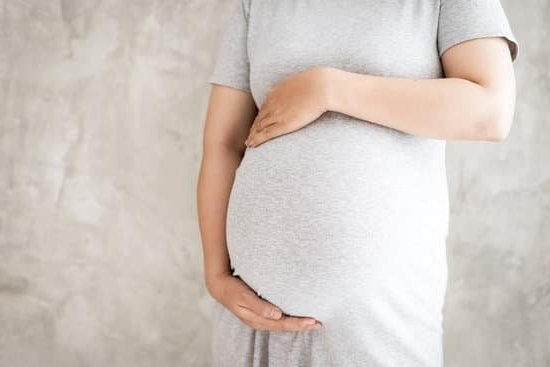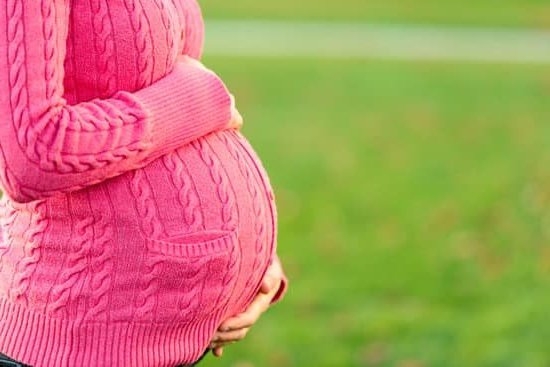Finding out you are pregnant can be an exciting and life-changing moment for many women. But how long does it take to show signs of pregnancy after conception? Understanding the timeline of early pregnancy symptoms is crucial for those trying to conceive or who suspect they may be pregnant.
Pregnancy begins with the fertilization of an egg by sperm, leading to the formation of an embryo that eventually implants in the uterus. This process triggers a cascade of hormonal changes in the body, including an increase in levels of human chorionic gonadotropin (hCG), a hormone that is essential for maintaining the pregnancy.
In the first few weeks after conception, women may start experiencing common signs of pregnancy like breast tenderness, nausea, mood swings, and fatigue. These early symptoms can vary from woman to woman and may be influenced by factors such as individual health conditions and lifestyle choices. Understanding when these signs typically appear can help individuals determine when to take a pregnancy test for accurate results.
The Science Behind Pregnancy
Pregnancy is a fascinating journey that begins with the fertilization of an egg by a sperm. This process usually occurs in the fallopian tubes, resulting in the formation of a zygote, which eventually develops into an embryo. The fertilized egg then travels down to the uterus where it implants itself into the uterine lining. This implantation is crucial for the embryo to receive nutrients and support for further growth.
During pregnancy, the body undergoes significant hormonal changes to support the development of the fetus. The key hormone involved in pregnancy is human chorionic gonadotropin (hCG), which is produced by the placenta after implantation. HCG plays a vital role in maintaining the uterine lining and supporting the production of other essential hormones like progesterone and estrogen. These hormonal fluctuations are responsible for many of the symptoms experienced during pregnancy.
As a result of these complex biological processes, signs of pregnancy may begin to appear within a few weeks after conception. It is important to understand how long does it take to show signs of pregnancy as this varies from woman to woman. Factors such as individual hormone levels, genetics, and overall health can influence when symptoms become noticeable. Generally, most women start experiencing early signs of pregnancy around 4-6 weeks after conception, although this timeline can differ.
Early Signs of Pregnancy
When it comes to the early signs of pregnancy, many women may wonder: how long does it take to show signs of pregnancy? The timeline from conception to the first noticeable symptoms can vary from woman to woman, but there are general estimates that can provide some guidance. It’s important to understand the typical progression of pregnancy symptoms in order to recognize any changes in your body and seek appropriate care.
Here is a breakdown of when you might expect to start noticing signs of pregnancy:
- 1-2 weeks after conception: Some women may experience implantation bleeding, which can be mistaken for a light period.
- 3-4 weeks after conception: Around this time, hormonal changes may lead to symptoms like breast tenderness, nausea, fatigue, and mood swings.
- 4-5 weeks after conception: By this point, you may notice a missed period and decide to take a pregnancy test for confirmation.
Factors such as individual hormone levels, overall health, and even stress levels can influence when these symptoms appear. Keep in mind that every person’s body is different, so it’s essential to pay attention to your own unique experience. If you suspect you may be pregnant but are unsure about the timing of symptoms, speaking with a healthcare provider can provide further clarity on what to expect.
Ultimately, staying informed about the early signs of pregnancy and being proactive in seeking medical advice can help ensure a healthy start to your journey into motherhood. Remember that each pregnancy is a unique experience, so trust your instincts and listen to what your body is telling you during this special time.
How Long Does It Take to Show Signs of Pregnancy?
Pregnancy is a life-changing experience for many women, but the journey of pregnancy begins well before the baby bump starts to show. One of the most common questions among women who suspect they may be pregnant is, “how long does it take to show signs of pregnancy?” The timeline from conception to the first noticeable symptoms can vary from woman to woman and depends on various factors.
Typically, signs of pregnancy may start to appear around one to two weeks after conception. However, some women may not experience any symptoms until several weeks later. Hormonal changes play a significant role in when these symptoms manifest.
Human Chorionic Gonadotropin (hCG), also known as the pregnancy hormone, is produced by the placenta once a fertilized egg attaches itself to the uterine lining. The levels of hCG increase rapidly in the early stages of pregnancy, leading to various physical and emotional changes.
| Conception | Timeline for Signs of Pregnancy |
|---|---|
| 1-2 weeks | Early symptoms may start appearing |
| 3-4 weeks | Hormonal changes continue; more noticeable symptoms like fatigue and breast tenderness might occur |
| 5-6 weeks | Nausea, mood swings, and other common early signs of pregnancy become more prominent |
Understanding the timeline for the development of early signs of pregnancy can help individuals recognize important changes in their bodies and make informed decisions about their health going forward. If you suspect that you might be pregnant but are unsure about when to expect these signs, consulting with a healthcare provider can provide clarity and support throughout this exciting journey towards motherhood.
The Role of Hormones
During pregnancy, hormones play a crucial role in the development and maintenance of the pregnancy. One key hormone that is produced during pregnancy is hCG (human chorionic gonadotropin), which is often referred to as the “pregnancy hormone.” This hormone is produced by the cells that form the placenta and can be detected in both blood and urine shortly after conception. Understanding how hormones like hCG affect pregnancy symptoms can provide insight into when signs of pregnancy may start to appear.
hCG levels typically double every 48 to 72 hours during early pregnancy, which means that the hormone can rapidly increase within the first few weeks after conception. This increase in hCG levels is what triggers many common early pregnancy symptoms, such as nausea, breast tenderness, and fatigue. However, it is important to note that hormonal changes can vary from woman to woman, so not everyone will experience the same symptoms or at the same intensity.
Monitoring hormone levels throughout pregnancy is essential for ensuring the health and well-being of both the mother and baby. Healthcare providers may track hCG levels through blood tests to confirm a viable pregnancy and monitor its progression. Any abnormal changes in hormone levels may indicate potential issues with the pregnancy, so regular monitoring is crucial. By understanding how hormones influence pregnancy symptoms and seeking appropriate medical care, expectant mothers can navigate their pregnancy journey with confidence.
| Key Point | Information |
|---|---|
| hCG Levels Increase | Hormone levels double every 48 to 72 hours after conception |
| Variation in Symptoms | Hormonal changes can differ among individuals leading to varied symptoms |
| Importance of Monitoring | Tracking hormone levels helps ensure a healthy progression of the pregnancy |
Pregnancy Testing Methods
Types of Pregnancy Tests
There are primarily two types of pregnancy tests available: urine tests and blood tests. Urine tests are commonly used at home as they are convenient and easily accessible. These tests detect the presence of a hormone called human chorionic gonadotropin (hCG) in the urine, which is only produced during pregnancy. On the other hand, blood tests, which can be done at a healthcare provider’s office, are more sensitive and can detect lower levels of hCG earlier in the pregnancy.
At-Home Pregnancy Tests
At-home pregnancy tests typically come in the form of urine test strips or midstream sticks that are dipped into a sample of urine. These tests usually provide results within minutes by indicating whether hCG is present in the urine. While most at-home pregnancy tests claim to be over 99% accurate when used correctly, it is recommended to follow the instructions provided with the test carefully to ensure accurate results.
Confirmatory Testing With Healthcare Providers
If you receive a positive result on an at-home pregnancy test, it is advisable to seek confirmatory testing from a healthcare provider. During this appointment, they may conduct a blood test to measure hCG levels more precisely and confirm the pregnancy. Additionally, healthcare providers can provide guidance on prenatal care and answer any questions you may have about your pregnancy journey.
Tracking Pregnancy Symptoms
During the early stages of pregnancy, many women eagerly anticipate the arrival of signs that confirm their pregnancy. Being able to track these symptoms is crucial for understanding and monitoring the changes happening in the body. It’s natural to wonder, “How long does it take to show signs of pregnancy?” Understanding when these symptoms may appear can help individuals be more prepared for what lies ahead.
Timeline of Pregnancy Symptoms
The timeline for when pregnancy symptoms first appear can vary from woman to woman. Typically, early signs of pregnancy can start showing up as early as one week after conception. However, for some individuals, it may take longer before noticeable symptoms manifest. Common early signs include a missed period, morning sickness, fatigue, breast tenderness, and mood swings. It is essential to pay attention to these changes to get a clearer picture of your body’s response to pregnancy.
Factors Influencing Symptom Onset
Several factors can influence how soon you’ll experience signs of pregnancy. One such factor is individual hormonal levels and how quickly they rise after conception. Additionally, pre-existing health conditions or lifestyle habits like smoking and diet can impact when symptoms manifest. Genetic predispositions may also play a role in determining how soon you’ll notice changes in your body. Keeping track of these factors alongside your symptom development can provide valuable insights into your unique pregnancy journey.
When to Seek Medical Advice
If you suspect you might be pregnant but haven’t experienced any noticeable symptoms yet, it’s still advisable to consult with a healthcare provider for confirmation. They can perform tests to confirm whether you are pregnant and offer guidance on next steps if necessary. Remember that every pregnancy is different, so even if symptoms take longer to show up, it doesn’t necessarily indicate a problem.
Seeking medical advice will provide reassurance and support as you navigate this exciting time in your life. Tracking pregnancy symptoms from the very beginning ensures that you are well-prepared for the journey ahead and equipped with necessary knowledge about what to expect during those crucial nine months.
Conclusion
In conclusion, the timeline for when signs of pregnancy may appear can vary from woman to woman, but typically early symptoms can start as early as one to two weeks after conception. Factors such as individual hormone levels and implantation timing can influence when these signs manifest. It is important to be aware of these early signs, such as breast tenderness, nausea, mood swings, and fatigue, in order to consider the possibility of pregnancy and take appropriate steps.
If you suspect that you may be pregnant based on the signs discussed in this article, it is essential to seek medical advice for confirmation and proper prenatal care. Pregnancy testing methods are readily available, including at-home tests that provide accurate results if used correctly. However, a confirmatory test by a healthcare provider is always recommended to ensure an accurate diagnosis and guidance on next steps.
Overall, the journey of pregnancy is a unique and exciting time in a woman’s life. By understanding the science behind pregnancy, tracking symptoms diligently, and seeking medical support when needed, expectant mothers can embark on this transformative experience with confidence and care. Embracing the changes in their body and nurturing their health along the way will pave the path for a healthy pregnancy and a joyful arrival of a new life.
Frequently Asked Questions
How Soon Can You Tell if You Are Pregnant?
The timing for detecting pregnancy varies from woman to woman, but generally, you can take a home pregnancy test as early as a week after your missed period. These tests detect the hormone hCG in your urine.
How Can I Tell if Im Pregnant After 1 Week?
One week into pregnancy, you may start experiencing symptoms like fatigue, nausea, breast tenderness, or frequent urination. However, the most accurate way to confirm pregnancy is through a blood test at your doctor’s office.
How Quickly Do You Have Symptoms of Pregnancy?
Symptoms of pregnancy can appear as early as one to two weeks after conception. These may include morning sickness, fatigue, mood swings, and heightened sense of smell. Every woman experiences these signs differently and at varying intensities.

Welcome to my fertility blog. This is a space where I will be sharing my experiences as I navigate through the world of fertility treatments, as well as provide information and resources about fertility and pregnancy.





